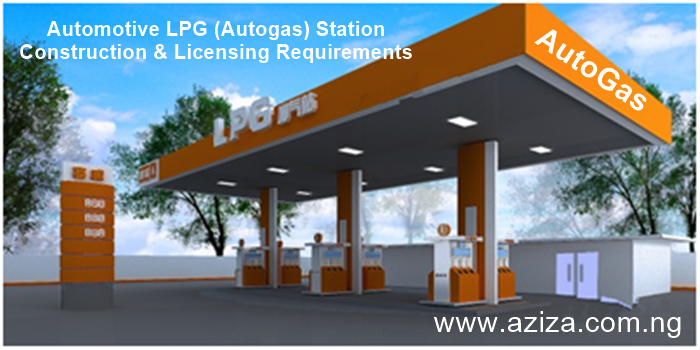GUIDELINES AND PROCEDURE OBTAINMENT OF OFFSHORE SAFETY PERMIT IN NIGERIA FOR PERSONS & COMPANIES
Purpose OFFSHORE SAFETY PERMIT
This document describes the requirements for travelling either by helicopter or boat to offshore/swamp facilities; oil and gas platforms, rigs, work barges, marine vessels, work boats owned/operated by Operators and/or Contractors in the Nigerian Oil and Gas industry. It provides explanation for the offshore travel operations requirements as enshrined in the Mineral Oils (Safety) Regulations 1997 and provisions of Section 60 (a) of the Petroleum (Drilling and Production) Regulations 1969, as amended.
OFFSHORE SAFETY PERMIT
In Oil & Gas business in Nigeria, any job or contracts that based on Offshore, personnel that will execute the job need to obtain OFFSHORE SAFETY PERMIT before they will allowed to go to offshore to execute the job(s).
Scope
This document defines the different types of Offshore Safety Permits and corresponding training requirements, and describes the processes for obtaining these permits as well as the process for requesting an offshore visit.
For OFFSHORE SAFETY PERMIT REGISTRATION SERVICE
Offshore Safety Permit is recorded as a barcode strip on an E- Card issued by DPR or its accredited representative. The OSP also records personal details, medical fitness certification, training certification, competence assurance
status, etc.
The scope also includes the means of travel by helicopter and boat, and modes of transfer to offshore facilities.
Terminology
Abbreviations, terms and references used in this document are explained hereunder:
Abbreviation & Meaning
AOS = Area Operations Supervisor
API = American Petroleum Institute
BLO = Boat Landing Officer
BOSIET = Basic Offshore Safety Induction and Emergency Training
COC = Certificate of Competency for mariners
CSR = Company Site Representative
DSV = Drilling Supervisor
EBS = Emergency Breathing System
TFOET = Tropical Further Offshore Emergency Training
FOS = Field Operations Supervisor
FOET = Further Offshore Emergency Training.
HIP = Hazard Identification Plan
HLO = Helicopter Landing Officer
HUET = Helicopter Underwater Escape Training.
NCAA = Nigerian Civil Aviation Authority
IADC = International Association of Drilling Contractors
IATA = International Air Transport Association
ICAO = International Civil Aviation Organization
MOPO = Manual of Permitted operations
NOGEPA = Netherlands Oils and Gas Exploration and Production Association.
NSOC-D = North Sea Operators Committee – Denmark.
OLF = Norwegian Oil Industry Association.
OPITO = Offshore Petroleum Industry Training Organization
TBOSIET = Tropical Basic Offshore Safety Induction and Emergency Training
TFOET = Tropical Further Offshore Emergency Training.
THUET = Tropical Helicopter Underwater Escape Training
UKOOA = United Kingdom Offshore Operators Association.
OSP = Offshore Safety Permit
POB = Personnel On board
STCW = Standard Training Certification and Watch keeping
SOLAS = Safety of Life at Sea
SOS = Senior Operations Supervisor
TSbB = Travel Safely by Boat
VIP = Very Important Person e.g. Government Senior Officials, Senior Company Directors and CEO, Foreign Embassy
delegates, Stakeholder, Other Senior delegates from various Companies Local and Foreign.
OFFSHORE/SWAMP LOCATION TRAVEL REQUIREMENTS
2.1. Travel to Offshore/Swamp Facility
Any person travelling to an offshore/swamp facility, marine vessel, barge or rig operated in the Nigerian Oil and Gas industry, by either helicopter or boat must:
I. be authorized by the senior person of the facility, vessel, barge or rig to travel to their destination. Authorisation for personnel from Government Regulatory and Security Agencies shall be from the respective
Government Regulatory and Security Agencies in accordance with their statutory mandates
II. be trained in accordance with the company’s Training Matrix which details the relevant mandatory professional training requirements for an individual and the required safety permit.
III. not exceed a stay of thirty (30) days from the time of arrival to their offshore destination and the minimum duration of ‘time off’ must be at least half the time of stay offshore.
IV. not exceed 12 hours work time per day and shall also have equal time for rest.
V. possess and present a valid Offshore Safety Permit (OSP) Card for admittance; at designated desks at embarkation points, on arrival from and departure to offshore locations.
Note: In the event of special circumstances that may require exception to above, Company must notify the Department with satisfactory reason and obtain approval from the Director, DPR.

